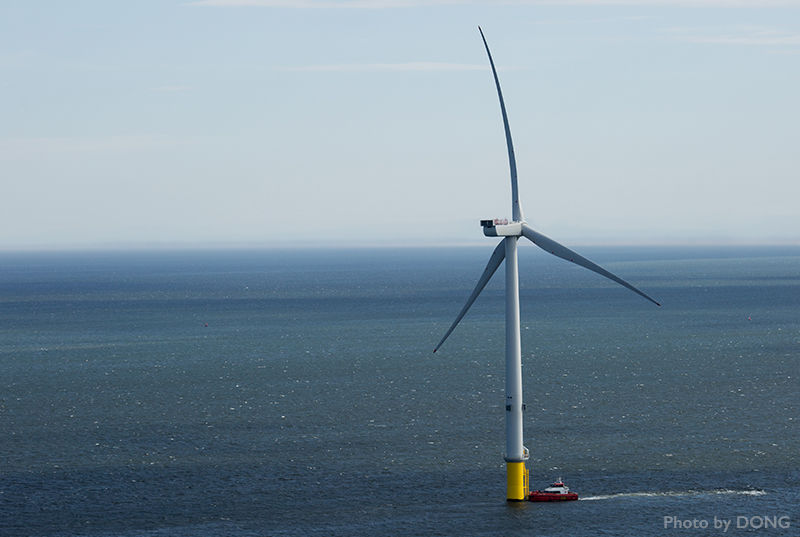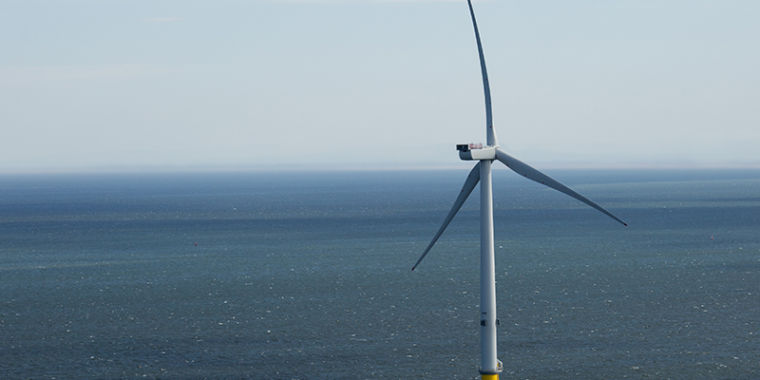
Dong Energy
The oil crisis of the 1970s, and how the countries affected by it reacted, has several lessons for modern countries looking to switch to renewable energy sources, according to the authors of a new paper. In 1973, the Arab countries of the Organization of the Petroleum Exporting Countries (OPEC) stopped exporting oil to countries that supported Israel in the Yom Kippur War. The results saw oil shortages and prices skyrocket in many countries, including parts of Europe, the United States and Canada. In response, some began to switch to renewable energy sources.
However, there is a political price to be paid for adopting policies moving away from fossil fuels. These policies can be costly in the short term, causing businesses and consumers to withdraw from them. Some nations – often in Europe – had favorable political characteristics or adopted tactics that softened the political blow, leaving them… moving forward with these efforts. Others, such as the US and Canada, stalled. New research looked at OECD countries’ responses to the oil crisis and dug into the political reasons why these responses differed.
“We are…interested in trying to understand when a country’s policymakers are able to overcome resistance to” [these] costly policies for businesses and households,” Jonas Meckling, an associate professor of energy and environmental policy at the University of California, Berkeley, and author of the article told Ars.
Back in time
Meckling’s article is a summary of a larger, yet-to-be-published piece of research. This effort dates back about five years when Meckling and colleagues began studying how OECD countries responded to the oil crisis in the 1970s. According to Meckling, the team chose this time frame because it offered the longest period of time to study the efforts being made to bring about a clean energy transition. The larger part of the research uses a variety of methods, including statistical analysis of OECD countries’ responses and various case studies. The current report focuses on understanding how policy responses evolved.
Some 50 years after the events it analyzes, this work seems timely, given the impact the Ukrainian war has had on energy prices. Again, a supply shortage and rising energy prices have led some European countries to ramp up their green energy efforts, while others, including the US, have focused on producing more oil.
In writing the summary paper, Meckling and his team also introduced perspectives from the current energy crisis caused by the war in Ukraine. “It only anecdotally examines policy responses to the current energy crisis. As governments’ policy responses continue to unfold, we have no systematic data to compare countries’ actions,” Meckling said.
isolation station
Meckling said there are two ways governments have quickly adopted new energy policies without paying a hefty price in the polls. The first is insulation, but not the kind you put in the attic. In this context, it means that a government does not pay a political price for implementing or adopting costly policies, such as carbon pricing.
This can take different forms. First, governments in proportionally represented countries tend to suffer less in the polls if they have costly environmental policies. Part of this is because, under proportional government rules, minority parties like the Green Party can end up in coalition governments. Countries that typically have coalition governments — like many European countries — also make it harder for voters to choose a partner party in a coalition to punish. France is an example of an OECD country using this mechanism.
Another way a country can be isolated is by having a strong environmental agency with a lot of autonomy. These organizations can often weather the backlash more easily because their high-ranking employees often have lifelong jobs, Meckling said. Alternatively, if an agency is not as autonomous and its staff is politically appointed, its appointees may depend more on companies for support, he added. As such, they can better respond to corporate pushback.
In general, the US has not been quick to adopt policies moving towards renewables, Meckling said. However, a good example of isolation is the California Air Resource Board. It is relatively autonomous from the state government and not particularly subject to pressure from consumers, lobbyists and businesses.
Soften the blow
Besides political isolation, the second major factor is compensation, where a government strikes a deal with groups that could potentially lose by adopting greener energy policies, such as by subsidizing green steel production, Meckling said. Another possibility is that the government will provide individual households with welfare to compensate for the higher energy costs.
Germany tends to prefer this mechanism, Meckling said. The country created the Coal Compromise, which brought together coal companies, unions, mining region leaders and environmentalists to find a plan to eliminate the use of coal by 2038. The German government will provide economic support to workers and coal-dependent regions and other industries to soften the blow.
Other countries chose neither option, opting instead for market-driven solutions. They responded to price signals and waited for the cost of certain green technologies to drop. This means they have been slower in adopting green energy policies. Some examples are the US, Canada and Australia.
According to a press release about the study, the work offers “important lessons” for governments looking to reduce their emissions. Furthermore, Meckling hopes the document will help countries tailor policies to their specific institutional context, he said.
Science, 2022. DOI: 10.1126/science.adc9973 (About DOIs)

